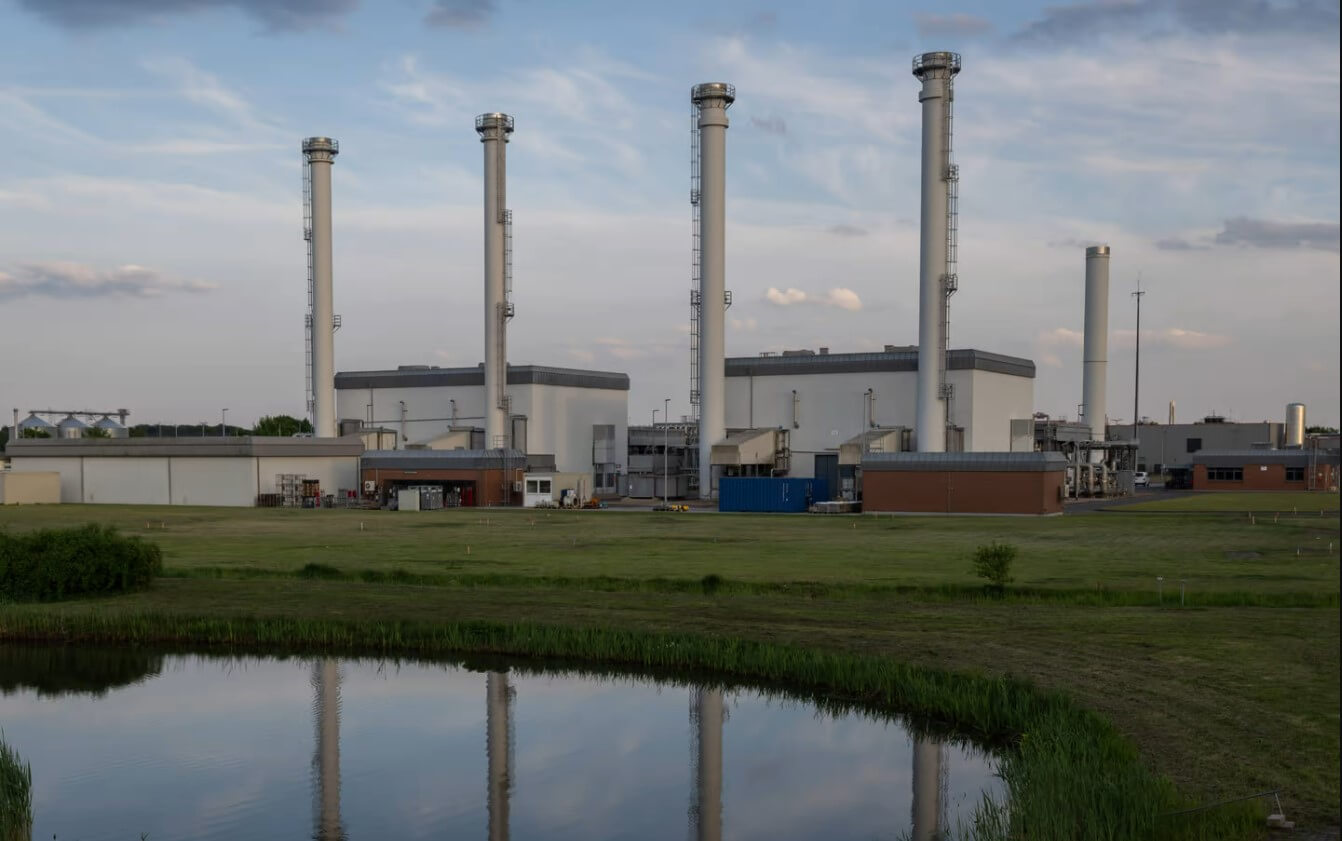In retaliation to the European Union (EU) banning 75% of Russian oil imports, Russian state-owned energy company Gazprom announced on Tuesday that it has completely “suspended” natural gas delivery to the Netherlands and Denmark for failing to make gas payments in rubles.
Back in March, Russian President Vladimir Putin announced that Moscow will no longer accept the dollar or euro as payment from “unfriendly states” for its natural gas. He emphasised that his decision to only accept payment in the ruble was in retaliation to a barrage of Western economic sanctions that have frozen billions of dollars worth of foreign assets.
Gazprom completely suspends gas supplies to Netherlands’ GasTerra B.V. due to failure to pay in rubleshttps://t.co/z6YEWxSFeB
— Gazprom (@GazpromEN) May 31, 2022
Dutch company GasTerra, which buys and trades gas on behalf of the government, rejected Moscow’s demand of paying in rubles by opening an account in Gazprombank. “This is because to do so would risk breaching sanctions imposed by the EU and also because there are too many financial and operational risks associated with the required payment route,” GasTerra said in a statement, adding that opening a bank account in Moscow “poses too great a risk.”
However, GasTerra disclosed that it had predicted such a move and bought gas from other providers in the European market to make up for the 2 billion cubic metres (m³) of the contracted Russian gas. “GasTerra has repeatedly urged Gazprom to respect the contractually agreed payment structure and supply obligations, but to no avail,” the statement added.
31-May-22: In 1st hour of new gasday, flows of #natgas drop ~5% via NordStream1 following #Gazprom’s cut of #GasTerra and #Orsted. About 8mcm down into NEL, which delivers towards NL. Ukraine transit to Velke also dips, with nom at 38mcm down 3mcm DoD. #TTF #ONGT 🇳🇱🇩🇰
— Tom Marzec-Manser (@tmarzecmanser) May 31, 2022
In a similar vein, Dutch Economy Affairs Ministry spokesperson Pieter ten Bruggencate affirmed that Russia’s decision is not “seen as a threat” because the government was prepared. The Dutch government also acknowledged that the country “wants to be less dependent on Russian gas” and has “enough” reserves for the short term and will purchase from other countries when required. “This decision has no consequences for the physical supply of gas to Dutch households,” Climate and Energy Minister Rob Jetten tweeted.
According to the Russian Federal Customs Service, Russia supplied about 6.67 billion m³ of natural gas to the Netherlands in 2021, a 34.5% drop from 2020, and covered 16% of the country’s gas demand. As per Gas Infrastructure Europe, Dutch gas storage is now about 37% full, and the government plans to increase subsidies to $435 million to fill one of the largest open-access gas storage facilities, the Bergermeer.
Gazprom announced on Tuesday that it would also stop gas supply to Denmark from June 1 for not adhering to the ruble payment system. “Payments for gas supplied from April 1 must be made in rubles using the new bank details, about which the counterparties were informed in a timely manner,” it added. Calling it a “breach of contract,” Danish energy company Ørsted said in a statement, “We have no legal obligation under the contract to do so, and we have repeatedly informed Gazprom Export that we will not do so.” Ørsted also said that “it is possible” to purchase gas from the European market.
JUST IN: #Russia’s Gazprom cuts supplies to #Denmark after refusing to pay in ruble. Follows cut to Netherlands, Poland, Finland & Bulgaria.
— Joyce Karam (@Joyce_Karam) May 31, 2022
Ørsted is currently filling up its gas storage facilities in Denmark and Germany to “secure gas supplies to our customers and contribute to the market's security of supply.” According to a letter from Danish Minister of Climate and Energy and Public Utilities Dan Jorgensen to the parliament, the country’s gas reserves are 55% full and will be able to serve the gas needs of all Danish and Swedish customers for five months.
Russia had already halted gas supplies to Poland and Bulgaria in April, followed by Finland in May, with European Commission (EC) President Ursula von der Leyen calling it “yet another attempt to use gas as an instrument of blackmail.”
Meanwhile, German energy company Uniper’s Chief Executive Officer, Klaus-Dieter Maubach, stated that the company had opened a bank account in Gazprombank “in accordance with the new payment system,” adding that Gazprom will continue to fulfil all contractual obligations and that the company “remained a reliable supplier.” Similarly, Italian energy company Eni revealed in a press release that it had opened two bank accounts temporarily in Gazprombank last month “in compliance with the current international sanctions framework.”
🇩🇰🇳🇱Denmark & Netherlands refused to pay for Russian gas in rubles as #russia has demanded.
— Inna Sovsun (@InnaSovsun) May 31, 2022
These are strong political decisions that need to be recognized.
The abandonment of Russian gas is no less important than oil embargo. Russia's blackmail of Europe must be stopped.
Thanks!
However, this has caused a lot of confusion amongst European energy companies, as the EU had warned members of legal action if they violated EU sanctions by paying for Russian gas deliveries in rubles. In fact, GasTerra told Politico that the unclear guidelines from the EC were “very annoying.”
Additionally, Gazprom remarked that Shell Energy Europe Limited, which is partly responsible for supplying gas in Germany, would not be making payments in rubles for the 1.2 billion m³ of gas to be supplied to Germany, as per its contract.

